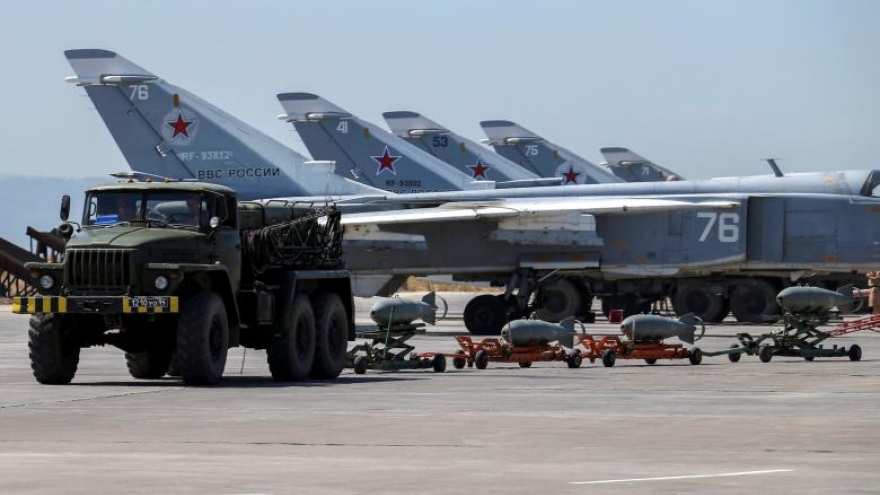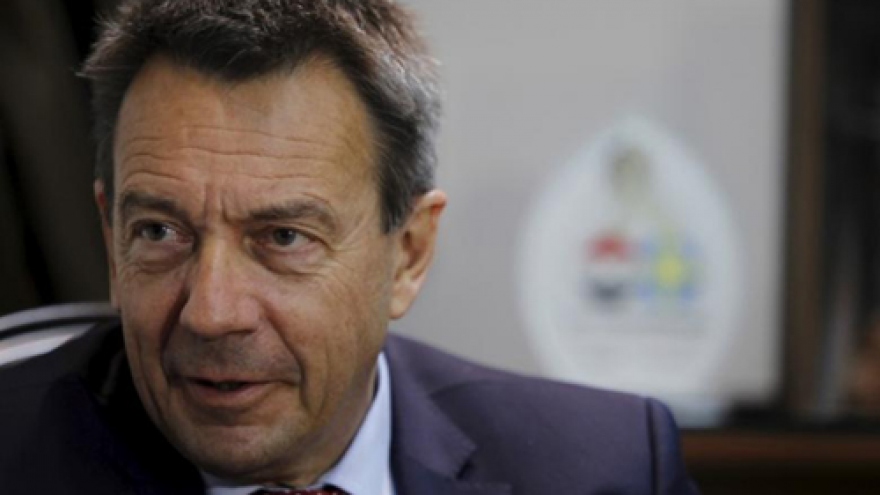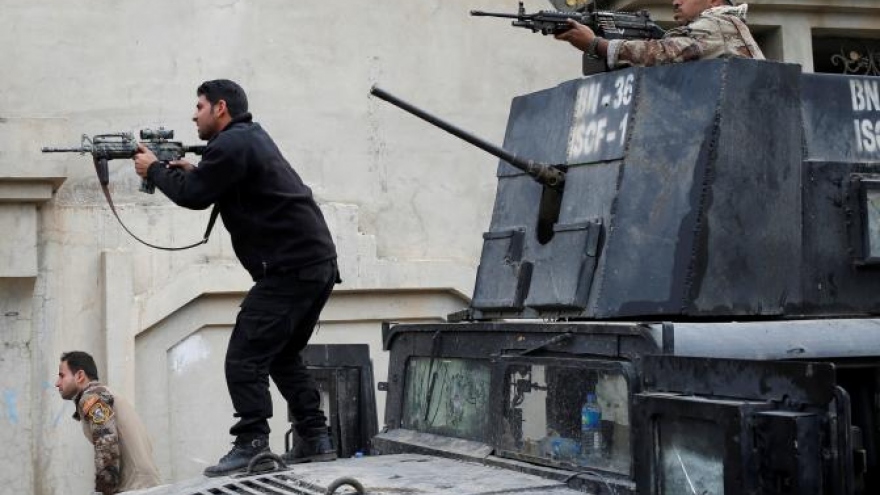UN envoy sees continued US work to end Syria war
The UN Special Envoy for Syria on November 24 said US President Barack Obama could well keep working until his last day in office to end the war in Syria, and Russia did not want to be held responsible for the demolition of eastern Aleppo.
 |
|
U.N. Syria mediator Staffan de Mistura attends a news conference in Damascus, Syria November 20, 2016. REUTERS/Omar Sanadiki
|
"President Obama .... and Secretary of State John Kerry are very motivated to end the greatest humanitarian tragedy of this century that has played out during their time in office. It's about their legacy," de Mistura said.
De Mistura on November 22 had expressed concern that Syrian President Bashar al-Assad could launch a "brutal" new offensive to crush rebel-held eastern Aleppo before U.S. President-elect Donald Trump takes office on Jan. 20.
He said his recent meetings in Damascus showed the Syrian regime had been emboldened by Trump's comments during the campaign about ending support for the Syrian opposition. But he said he reminded Syrian leaders that any U.S. president would face massive public pressure if the situation ended as a human tragedy with 200,000 people starving.
De Mistura said he feared eastern Aleppo could be decimated by Christmas if the bombardment continued, which would spur tens of thousands of refugees to flee to Turkey, and could lead to a prolonged guerilla war in rural areas and car bombs in cities.
The head of the Syria "White Helmets" volunteer group on Thursday said besieged residents of Aleppo were about ten days from starvation.
The U.N. envoy said he believed Russia's claim that it was not bombing any targets in eastern Aleppo, but added that Moscow was also not stopping Syrian forces from attacking hospitals or other targets in the city.
Still, he said he believed Russia was serious about "not wanting to take responsibility for the destruction of eastern Aleppo."
He said it was simply not in the interest of Russia or the Syrian government to be left with a completely destroyed country, five or six years of a "mini-Afghanistan," and a type of guerrilla war in the rural areas.




